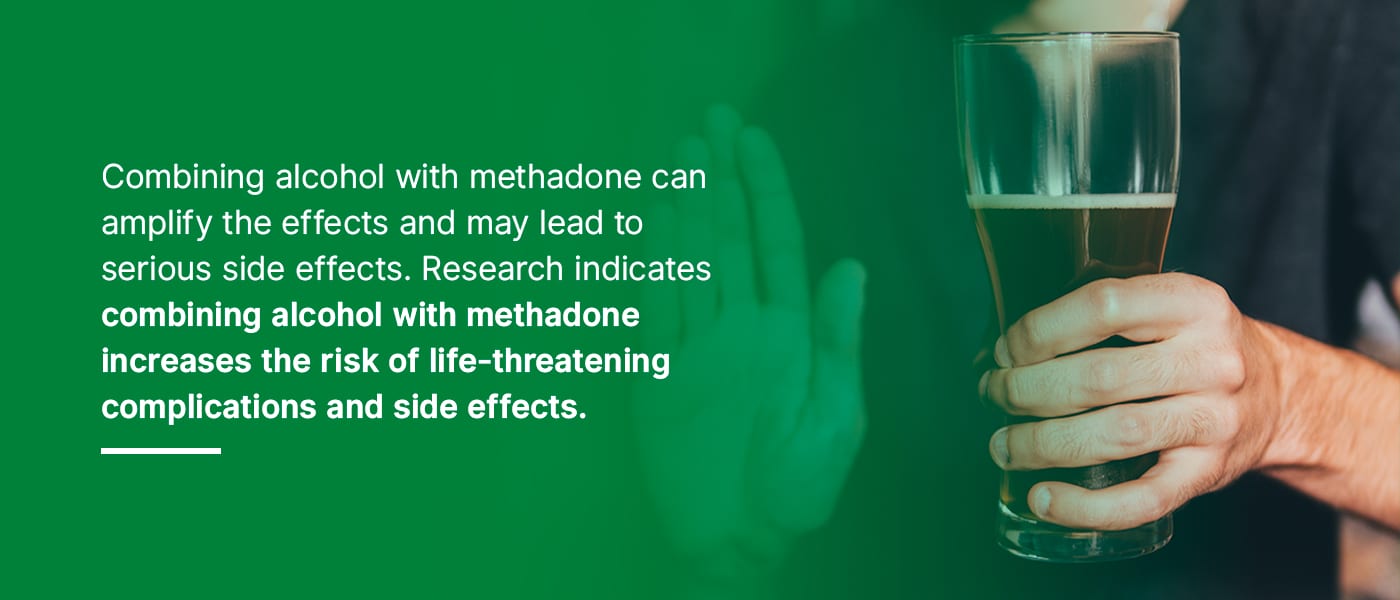Managing opioid withdrawal symptoms involves the use of medications such as methadone. Despite its effectiveness, like any other medication, methadone may have potential side effects and interactions. It is particularly concerning when mixed with alcohol, which can lead to dangerous outcomes due to the interaction between the two substances. Understanding the risks of combining methadone and alcohol is crucial for those under medication.
About Methadone
For more than 50 years, methadone has been a valuable tool in the field of addiction care, aiding patients in managing their opioid use disorder under the guidance of medical professionals. Despite its classification as an opioid drug, methadone can effectively alleviate withdrawal symptoms when taken in the prescribed dosage, without producing any euphoric effects. Following the recommended dosage can minimize physical effects and cravings, ensuring a safer recovery process. To ensure safe usage, you need to follow your doctor’s instructions and consider drug interactions.

Can You Drink on Methadone?
Taking alcohol and methadone together, both of which are nervous system depressants, can amplify their impact and lead to significant negative consequences. Studies have shown that the combination of alcohol with methadone can heighten the likelihood of life-threatening complications and side effects.
Drinking alcohol while on methadone may cause difficulty breathing, weakened heart rate, overdose, coma, and even death. Furthermore, both substances pose a risk of dependence, and individuals may encounter withdrawal symptoms when attempting to stop their use. Despite these risks, research suggests that approximately 25% to 35% of patients continue alcohol use even when entering methadone treatment.
Why Do People Combine Methadone and Alcohol?
A person might use alcohol with methadone for a number of reasons, including:
- Unawareness: Some patients who take methadone may be unaware of its interaction with alcohol, leading them to encounter unexpected effects upon drinking.
- Intentional misuse: In other cases, some individuals might take methadone and alcohol together to to enhance their level of intoxication, recognizing that the substances can interact with each other to produce a more pronounced effect.
- Comorbid alcoholism: Certain patients who have opioid use disorder also have alcohol use disorder in a phenomenon known as comorbidity. They might receive methadone for their opioid use disorder but don’t have a treatment for their alcohol use disorder.
Regardless of the reason, the combination of alcohol and methadone can have severe consequences.
What Happens When You Take Alcohol and Methadone Together?
Using multiple substances at once can lead to addiction and complications, meaning the addiction itself may be more difficult to treat. Understanding the potential side effects of mixing alcohol and methadone can help you avoid a dangerous situation. Some side effects of alcohol with methadone include:
- Fainting
- Seizures
- Vomiting
- Poor judgment
- Slurred speech
- Exhaustion and fatigue
- Impaired cognitive function
Many people may experience these symptoms in the immediate and short-term when combining alcohol and methadone. Continual alcohol use while taking methadone can increase the risk of serious, long-term, and sometimes fatal side effects, including:
- Overdose: Drinking alcohol while taking methadone can increase the risk of an overdose. Given that both methadone and alcohol suppress the central nervous system, the depressant effects of each substance are amplified. In some cases, the depressant effect becomes strong, causing shallow breathing. In extreme cases, an individual’s breathing may stop altogether.
- Brain damage: Alcohol alters brain function and causes slower reaction times, slurred speech, and impaired memory. Research indicates drinking alcohol for long periods or in excessive amounts may lead to persistent or serious changes in the brain. Brain damage may be caused directly by the effect of alcohol or indirectly by poor general health status.
- Liver damage: Alcohol may cause inflammation in the liver, which may lead to cirrhosis or scarring over time. Liver cirrhosis is the final phase of alcoholic liver disease and causes irreversible damage. One study shows methadone has a significant effect on alkaline phosphatase (ALP) levels, which may account for cholestatic pattern liver injury.
- Elevated blood pressure: Consuming alcohol can elevate blood pressure levels to an unhealthy level. If you drink more than three drinks in a single sitting, your blood pressure will temporarily rise. Repeated or ongoing binge drinking may lead to long-term blood pressure increases. High blood pressure can cause or worsen various medical conditions.
- Higher risk of certain cancers: Research continues to show a relationship between alcohol consumption and increased risk of certain cancers. Alcohol may increase the risk of head and neck cancer, liver cancer, breast cancer, esophageal cancer, and colorectal cancer.
When you drink alcohol while taking methadone, the alcohol puts you at a higher risk of a methadone overdose. As we mentioned earlier, you can have a safe methadone treatment plan with a doctor’s help. However, doing activities that go against that treatment plan, such as alcohol use, can put you in danger. Alcohol increases the risk of shallow or stopped breathing associated with opioids. This effect, known as respiratory depression, acts as one of the leading causes of opioid overdose. Combining alcohol and methadone can also cause:
- Memory problems
- Motor control difficulties
- Behavior changes
- Dizziness
- Drowsiness
If you take methadone for opioid use disorder, remember to practice caution in environments involving drinking and opt for non-alcoholic alternatives.
How to Get Help If You Combine Methadone and Alcohol
If you misuse methadone and alcohol together or have both opioid and alcohol use disorder, a substance use treatment center can help. These clinics help patients who have substance use disorders recover. An opioid use disorder clinic such as MedMark Treatment Centers specializes in assisting people addicted to opioids. They can coordinate your care with other treatment centers to address all your symptoms.
Let MedMark Treatment Centers Help
Do you think you or a loved one has an opioid addiction? MedMark Treatment Centers and our affiliates help patients across the United States work toward drug-free living. Find the closest center to you using our map and call us at 866-840-6658 to schedule an appointment.

